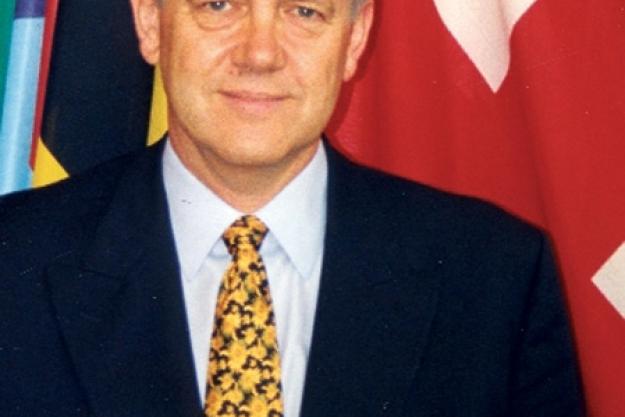
By Ambassador Lyn Parker, Permanent Representative of the United Kingdom of Great Britain and Northern Ireland to the OPCW
The Open-ended Working Group worked for over 18 months to prepare for the Second Review Conference. Those involved along the way – States Parties, Technical Secretariat, industry, NGOs etc – will all have their own views on how the group performed, but I would offer a few personal thoughts from the vantage point of the Chair.
Starting the review process earlier than for the First Review Conference made it easier for us to cover the wide range of issues involved. Having a clear work plan from the outset also proved valuable, both in being able to give delegations plenty of notice of what was to be discussed, and also in ensuring that the Group took necessary decisions in good time.
It was noticeable however that, while some delegations took clear policy positions from early on, others were only able to clarify their positions at a relatively late stage. To an extent this was not surprising, but it is a factor which those preparing for the next review conference will need to take carefully into account. In particular, it would be worth looking for ways to encourage more sharply focussed discussions at an earlier stage of potentially contentious issues, so that the full range of views could be taken more effectively into account during the drafting process.
The Group spent considerable time discussing the modalities of involving industry and (especially) NGOs in the preparations. In the end, sensible solutions were agreed and the various events that were organised were certainly worthwhile. Although the review process is the responsibility of the States Parties, it needs to take some account of the views of industry and civil society. The pattern of involvement which we eventually adopted can no doubt be further improved in future, but appropriate discussions with industry and civil society should increasingly be seen as a normal feature of any review.
Much effort – especially by the Secretariat – went into ensuring that the procedures for the effective running of the Conference were put into place, that the work of the Group was properly documented and that relevant papers (including informal summary notes of all the meetings) were placed on the external server for the information of States Parties, both those directly involved in The Hague and more widely. This was an important transparency measure, but more could perhaps be done in future to draw States Parties’ attention to these resources and to help them make good use of them.
There was much debate in the Group about the handling of the drafting process in the final weeks of its work. This will always be an area of difficulty for the Chair, given the wide range of views among States Parties. One area which certainly needs improvement is the handling of drafting amendments.
In the closing stages of the Group’s work the Chair received a very large number of suggested amendments to the various draft texts under discussion. We repeatedly asked delegations to notify the Secretariat if they were prepared to have their amendments posted on the external server for the information of other States Parties, but in the event only some delegations did this. It will be important in future to establish a more transparent procedure that gives all delegations a clearer picture of what changes have been suggested, so that it is easier for everyone to understand the evolution of draft texts on the table.
Finally, I would like to thank all those involved in the work of the Open-ended Working Group for their co-operation. Processes of this kind are never going to be easy, nor will they satisfy everyone, but the collective sense of purpose and commitment in the group made a major contribution to the eventual success of the Review Conference itself.
